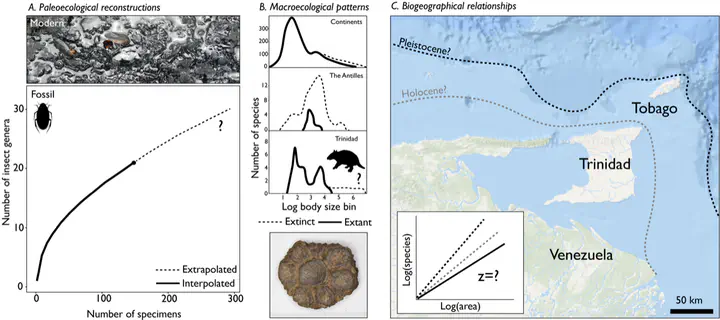Colonial legacies influence biodiversity lessons: how past trade routes and power dynamics shape present-day scientific research and professional opportunities for Caribbean scientists
 Image credit: Alexis Mychajliw
Image credit: Alexis Mychajliw
Abstract
Scientists recognize the Caribbean archipelago as a biodiversity hotspot and employ it for their research as a “natural laboratory”. Yet, they do not always appreciate that these ecosystems are in fact palimpsests shaped by multiple human cultures over millennia. Although post-European anthropogenic impacts are well documented, human influx into the region began about 5000 years prior. Thus, inferences of ecological and evolutionary processes within the Caribbean may in fact represent artifacts of an unrecognized human legacy linked to issues influenced by centuries of colonial rule. The threats posed by stochastic natural and anthropogenically influenced disasters demand that we have an understanding of the natural history of endemic species if we are to halt extinctions and maintain access to traditional livelihoods. However, systematic issues have significantly biased our biological knowledge of the Caribbean. We discuss two case studies of the Caribbean’s fragmented natural history collections and the effects of differing governance by the region’s multiple nation states. We identify knowledge gaps and highlight a dire need for integrated and accessible inventorying of the Caribbean’s collections. Research emphasizing local and international collaboration can lead to positive steps forward and will ultimately help us more accurately study Caribbean biodiversity and the ecological and evolutionary processes that generated it.